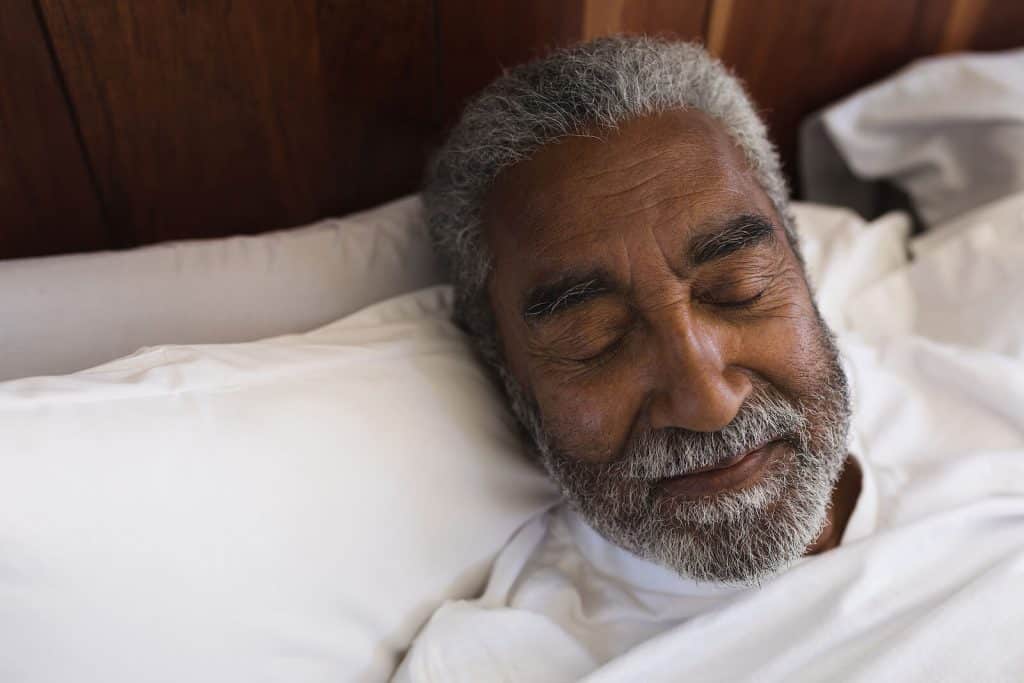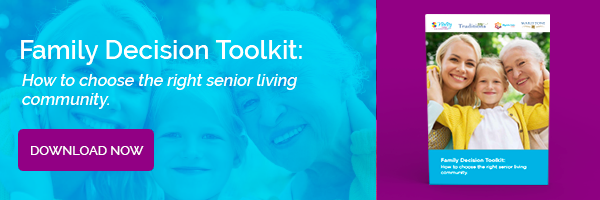With more than 6 million Americans now living with Alzheimer’s disease and a 145% increase in deaths from dementia between 2000 and 2019, according to the Alzheimer’s Association, it’s no wonder seniors fear this disease. Or why the medical community is feverishly working to identify not only a cure but what might cause Alzheimer’s or other dementias in the first place. A new research study suggests that not getting enough sleep in your 50s and 60s could be a risk factor for dementia. Here’s what the sleep-dementia connection could mean for you and how it highlights the importance of good rest in healthy aging plus sleep tips for seniors.
New Research on Sleep and Dementia
Recently published in the journal Nature Communications– a study that followed nearly 8,000 people in Britain for about 25 years, beginning when they were 50 years old found those who consistently reported sleeping six hours or less on average a night were approximately 30 percent more likely than those who regularly got the “normal” seven hours of sleep to be diagnosed with dementia in their late 70s.
What’s the connection? As brain changes such as accumulations of proteins associated with Alzheimer’s disease are known to begin about 15 to 20 years before symptoms are present, the thinking is that sleep patterns within that time frame could be considered an emerging effect of the disease. Although this one study can’t definitively say which comes first, the sleep problem or the brain changes, it does show strong evidence of the connection between the two.
It’s important to note that the researchers were able to adjust for other behaviors and characteristics that might influence sleep patterns or dementia risk in the study such as smoking, alcohol consumption, physical activity, body mass index, fruit and vegetable consumption, education level, marital status and conditions like hypertension, diabetes, and cardiovascular disease. However, there were limitations in the study including that most data were self-reported, most participants were white, better educated, and healthier than the overall British population, and researchers relied on electronic medical records for dementia diagnoses which means they could have missed some cases.
How Lack of Sleep Hurts Healthy Aging
But sleeping too little isn’t just a concern when it comes to Alzheimer’s and other forms of dementia. It’s recommended that adults between 18 and 64 get seven to nine hours of sleep per night and those over 65 get seven to eight hours. Yet, according to the CDC, 35.2% of all adults in the United States report sleeping on average for less than seven hours per night.
For seniors, this is even more common because of factors such as insomnia, sleep apnea, restless leg syndrome, arthritis, side effects of medications, and even changes in your body’s internal clock.
In the short-term, lack of sleep may cause excessive daytime sleepiness, lack of alertness, irritability, and even withdrawal from social activity, but long term it can put you at risk for:
- Premature wrinkling, dark circles under eyes
- Greater likelihood of falls or accidents
- High blood pressure
- Diabetes,
- Heart attack
- Stroke
- Obesity,
- Depression
- Impairment in immunity
Better Sleep Tips for Seniors
Now that you know why getting good rest is so important to healthy aging, the question is what can you do to improve your sleep? These tips can help:
- Follow a regular schedule – Try to go to sleep and get up at the same time each day.
- Minimize naps – Especially in the late afternoon or evening.
- Watch what you eat – Avoid large meals and caffeine close to bedtime.
- Exercise – Regular exercise can help regulate sleep patterns, but not within three hours of bedtime
- Create a cozy place to sleep – Keep the bedroom quiet and at a comfortable temperature and use low lighting in the evenings.
- Have a bedtime routine – To help you wind down, take time to relax before bed each night with a book, music or even a warm bath.
- Use your bedroom for sleep – Avoid watching the TV, phone or iPad in bed.
Healthy Aging in Senior Living
While sleep is vital to healthy aging, there are other components that contribute as well such as proper nutrition, staying active, maintaining social connections, and living with purpose, all of which our Vibrant Living program can help you achieve. Not to mention, the added peace of mind that comes from safe, comfortable surroundings where support and convenience are always at hand.
Check out The Beginner’s Guide to Recognizing Early Signs of Dementia to learn more. Or, contact your nearest Vitality Living community today to schedule your virtual tour!



